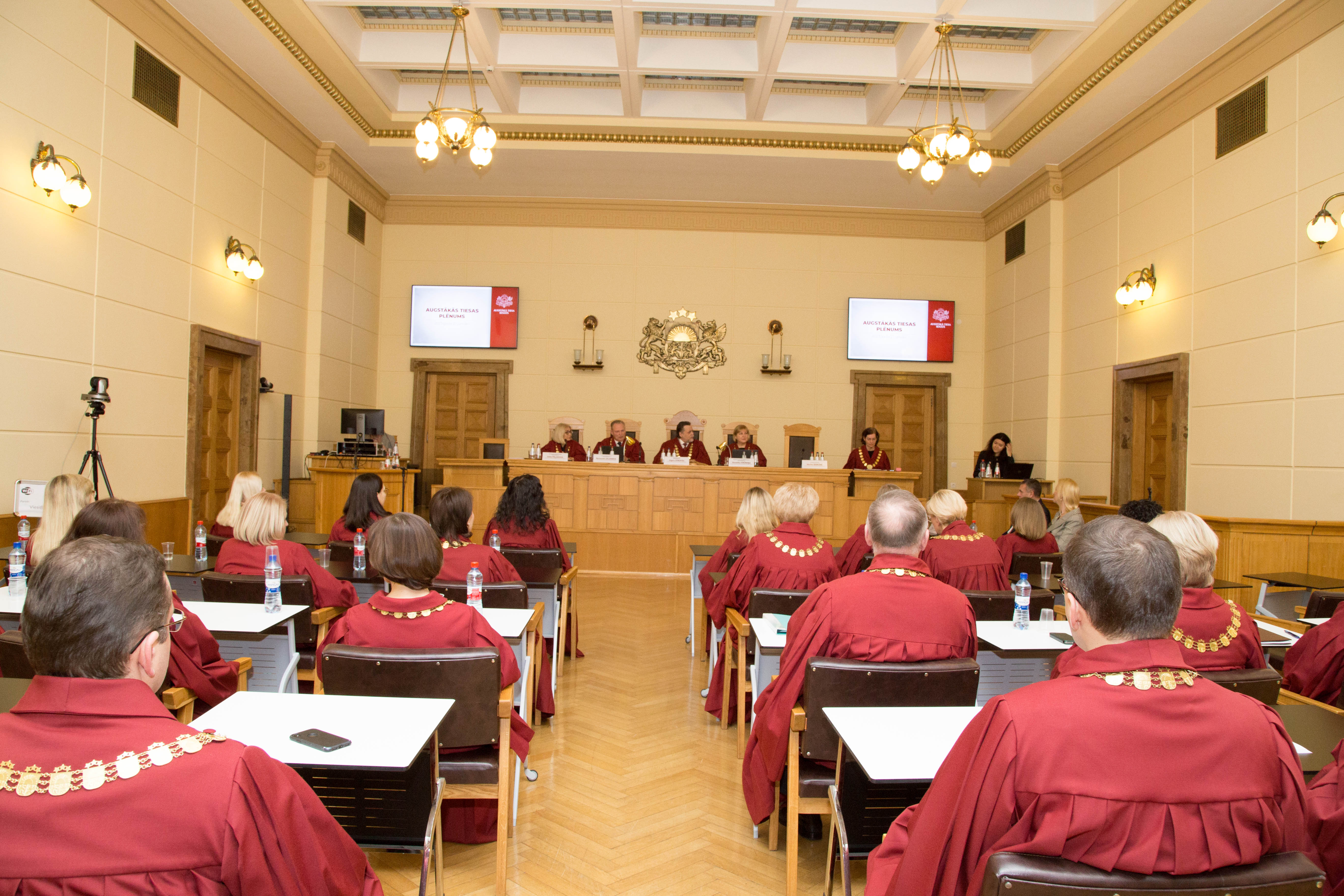Senate’s workload is gradually approaching the optimum – concludes the Supreme Court Plenary Session
30. janvāris, 2023.
The number of cases in the Senate is decreasing, and this is a good sign, including that the case law is being reinforced and the workload is decreasing, as summed up by the President of the Supreme Court, Aigars Strupišs, at the Annual Performance Report Plenary of the Supreme Court on January 27. Moreover, the cassation court would not have to spend as much time on non-cassation issues as it does now.
The President drew attention to the special role of the Senate: "We are being watched. People have expectations of us. And these expectations are reasonable, because the Senate is the flagship of justice, which formulates guidelines for the application of legal norms at the highest level. The position of senator is, of course, a great honour. However, first of all, this position implies responsibility. Therefore, the performance of the Senate must be continuously improved – both its quality and efficiency."
The primary task of the Senate as a court of cassation is to ensure formation of uniform national case law. The President indicated the development of guidelines for Senate's rulings as the key work of the past year in this area. The guidelines formulate requirements for the content of Senate's rulings. In its rulings, the Senate, as a court of cassation, must primarily identify and answer legal questions arising from cassation complaints.
"This is an important achievement. As soon as we have clearly formulated the basic principles of our work, there is a reason to demand that cassation complaints comply with them. Now we will continue working on the guidelines of requirements for cassation complaints, which can significantly improve our work," said A. Strupišs. The development of guidelines for cassation complaints will be a priority objective this year.
What regards the efficiency of the work of the Senate, the President of the Supreme Court pointed out that it is important to understand what is the optimal workload of a senator. "It is clear that 100-120 cases per senator per year, as it was in 2016, is too heavy workload for a court of cassation. The current 70-75 cases, which consist of approximately 25% of cassation decisions and 75% of assignment sitting decisions, seem to be approaching the optimal workload,” said the President. The Supreme Court will repeatedly raise the issue of the statutory participation of senators in various commissions and committees that are not related to the self-governance of judges, as well as in sanctioning the operational activities delegated to the Supreme Court. These additional duties not only increase the workload on senators, moreover, it is questionable whether such duties should be delegated to the highest judicial instance at all.
Additional lines of action put forward by the President of the Supreme Court include wider and more targeted communication between Senate departments and lower courts, the participation of senators in the training of judges, as well as the improvement of communication about court cases and educational measures for school youth.
On January 27, the Plenary Session evaluated the work of the Supreme Court in 2022. The work of the structural units was analysed by their heads, namely by chairs of Senate departments and heads of the Division of Case Law and Research and the Administration. The report was also given by the Chair of the Disciplinary Court. The Plenary Session was addressed by the Prosecutor General and the Minister of Justice.
Information prepared by
Rasma Zvejniece, the Head of the Division of Communication of the Supreme Court
E-mail: rasma.zvejniece@at.gov.lv, telephone: +371 67020396, +371 28652211


